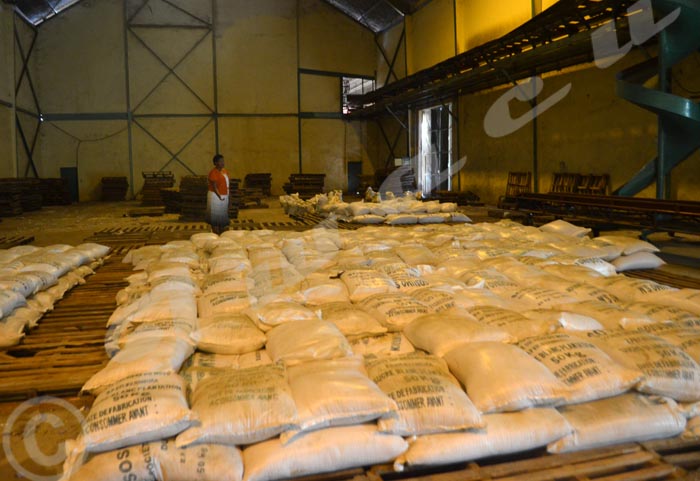
Bags of SOSUMO sugar
The price of sugar varies between BIF 2400 and BIF 2600 in some Bujumbura neighborhoods while the official price is BIF 1900. In Bwiza neighborhood of Mukaza Commune, a kg of sugar costs BIF 2400. “We can hardly find sugar. It has gone scarce since the past two weeks”, says a vendor met in one of the shops at Bwiza on the 4th avenue. He says he does not know the reason why the sugar price is dramatically increasing.
In Northern Mutanga of Ntahangwa Commune, retailers say the price of sugar varies between BIF 2500 and BIF 2600. “A fifty kilo-bag of sugar has gone up from BIF 97,000 to BIF 120, 000 since last month. How should we sell it at the official price while the retail price of a bag has visibly increased?”says one vendor met on the spot. He goes on to say that retailers no longer receive the desired quantity of sugar. “If nothing is done, we should give up selling sugar for fear of going bankrupt”, he says.
It’s an exception for the residents of Ngagara neighborhood of Ntahangwa Commune. The price of sugar is fixed at BIF 2,000 a kg. The retailer on “Agaharawe” shop explains that the reason behind this is that the sugar sold in that shop is coming directly from Bujumbura Sugar Company stock.
Bujumbura sugar traders include wholesalers and retailers. “Those who are directly supplied sugar by SOSUMO [Burundi Sugar Company] speculate on its price. The official price for a bag is actually fixed at BIF 90,310. However, the wholesalers increase the price once they start distributing it to the retailers”, says one SOSUMO official on condition of anonymity.
He goes on to say that there are some reasons that disrupt the market. “The 2016 sugar production campaign will end on 15 December and is due to resume in mid-May 2017. We must impose some measures to avoid stock shortages. When the demand is superior to the offer, this gives rise to speculations”, he says.
Currently, each wholesaler receives two tons of sugar per month instead of five tons given previously. “The above situation gives rise to speculations for wholesalers as the number of retailers and consumers who need sugar remains the same”, he says.
He, thus, says the administration must supervise and regulate the price of sugar in different neighborhoods of the capital.
The Sugar Company-SOSUMO supplies 626.5 tons to Bujumbura capital shops and supermarkets including 228 tones to be distributed to different neighborhoods.
The sugar company expects to produce 24,500 tons at the end of this year while it produced 23,500 tons and 25,800 tons in 2015 and 2014 respectively.



















 IWACU Open Data
IWACU Open Data

